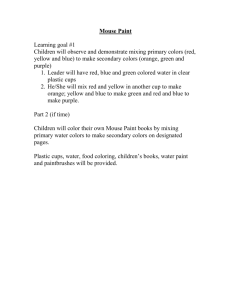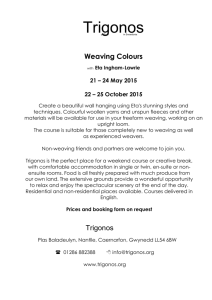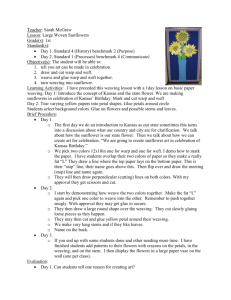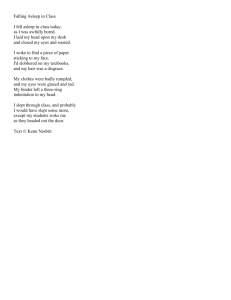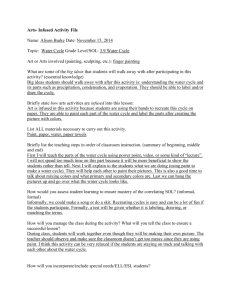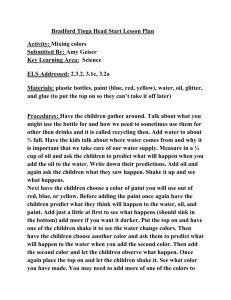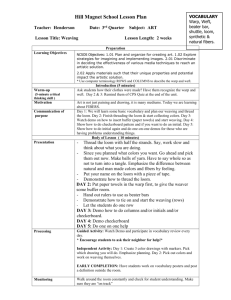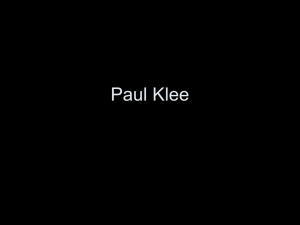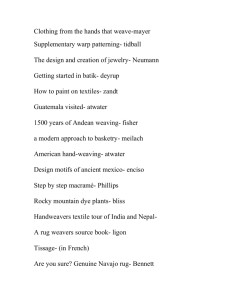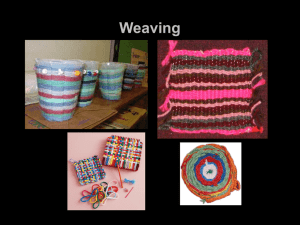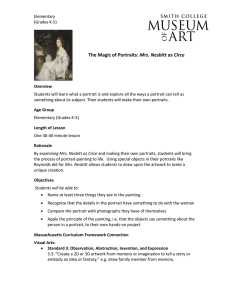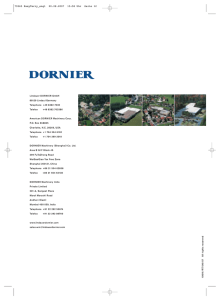From the Art Room:
advertisement
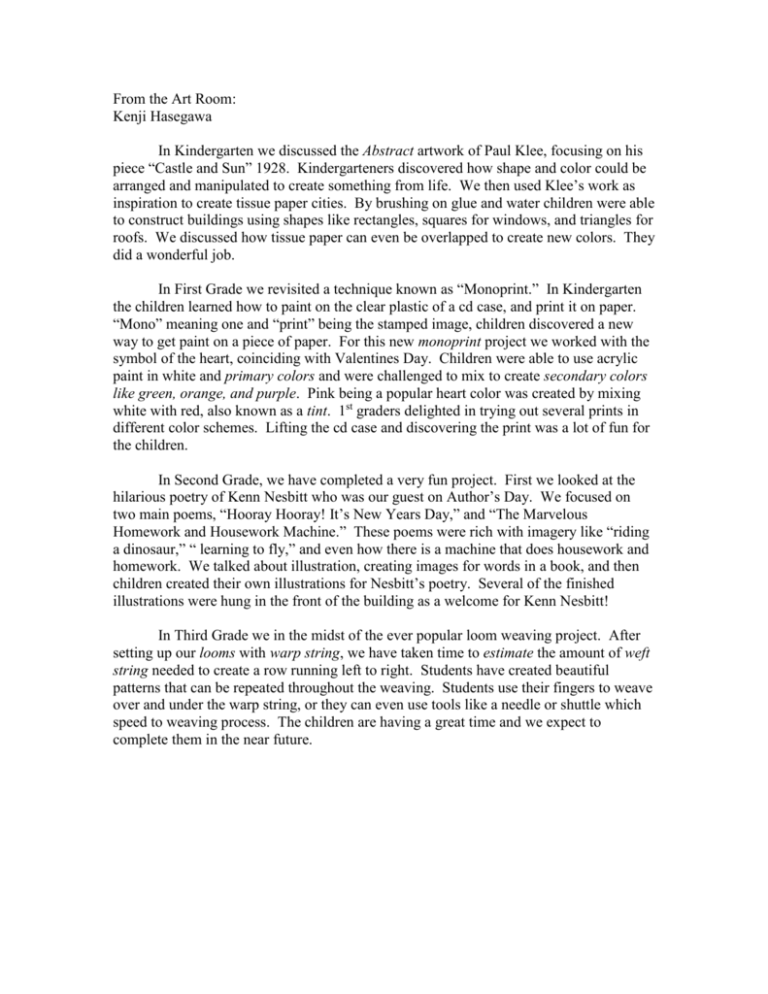
From the Art Room: Kenji Hasegawa In Kindergarten we discussed the Abstract artwork of Paul Klee, focusing on his piece “Castle and Sun” 1928. Kindergarteners discovered how shape and color could be arranged and manipulated to create something from life. We then used Klee’s work as inspiration to create tissue paper cities. By brushing on glue and water children were able to construct buildings using shapes like rectangles, squares for windows, and triangles for roofs. We discussed how tissue paper can even be overlapped to create new colors. They did a wonderful job. In First Grade we revisited a technique known as “Monoprint.” In Kindergarten the children learned how to paint on the clear plastic of a cd case, and print it on paper. “Mono” meaning one and “print” being the stamped image, children discovered a new way to get paint on a piece of paper. For this new monoprint project we worked with the symbol of the heart, coinciding with Valentines Day. Children were able to use acrylic paint in white and primary colors and were challenged to mix to create secondary colors like green, orange, and purple. Pink being a popular heart color was created by mixing white with red, also known as a tint. 1st graders delighted in trying out several prints in different color schemes. Lifting the cd case and discovering the print was a lot of fun for the children. In Second Grade, we have completed a very fun project. First we looked at the hilarious poetry of Kenn Nesbitt who was our guest on Author’s Day. We focused on two main poems, “Hooray Hooray! It’s New Years Day,” and “The Marvelous Homework and Housework Machine.” These poems were rich with imagery like “riding a dinosaur,” “ learning to fly,” and even how there is a machine that does housework and homework. We talked about illustration, creating images for words in a book, and then children created their own illustrations for Nesbitt’s poetry. Several of the finished illustrations were hung in the front of the building as a welcome for Kenn Nesbitt! In Third Grade we in the midst of the ever popular loom weaving project. After setting up our looms with warp string, we have taken time to estimate the amount of weft string needed to create a row running left to right. Students have created beautiful patterns that can be repeated throughout the weaving. Students use their fingers to weave over and under the warp string, or they can even use tools like a needle or shuttle which speed to weaving process. The children are having a great time and we expect to complete them in the near future.
